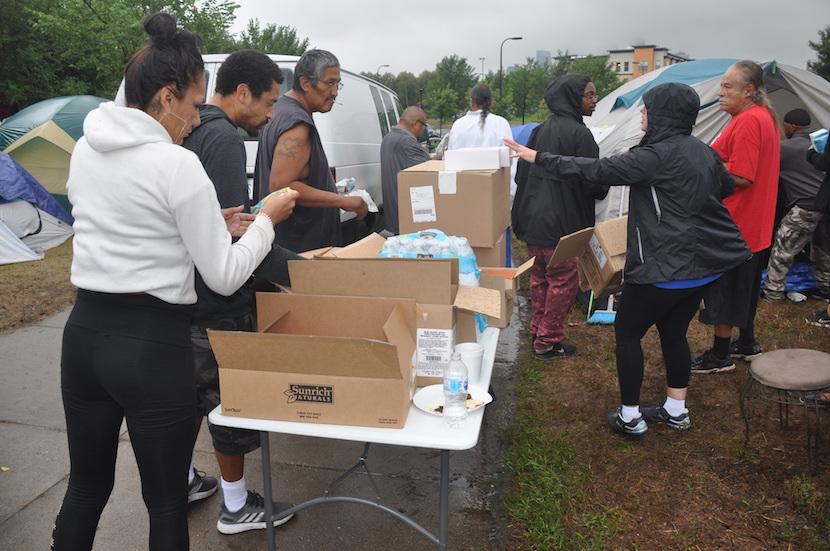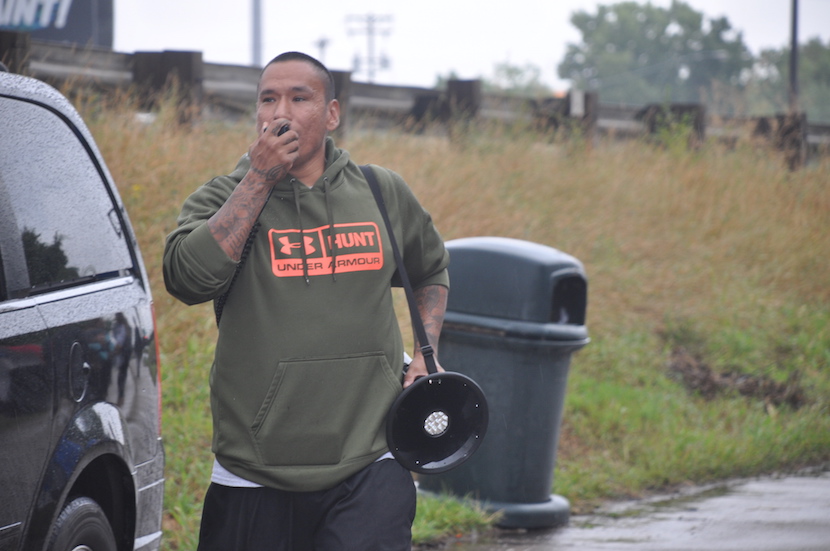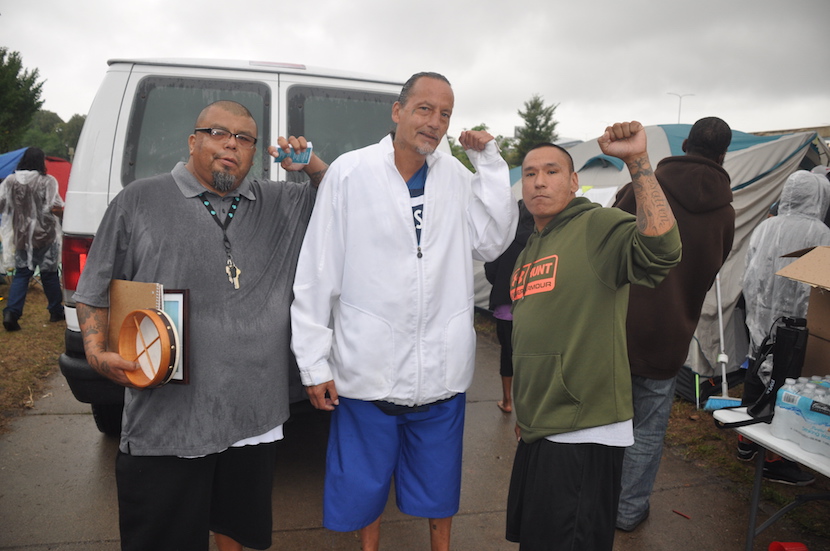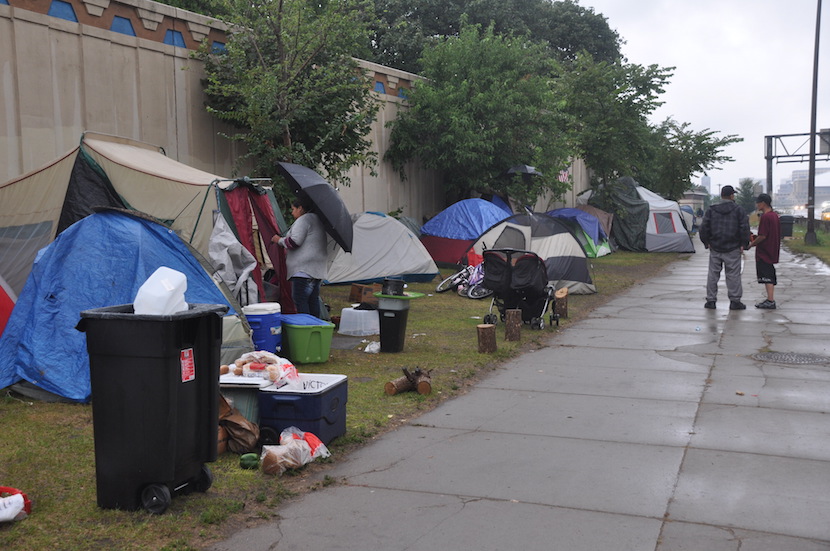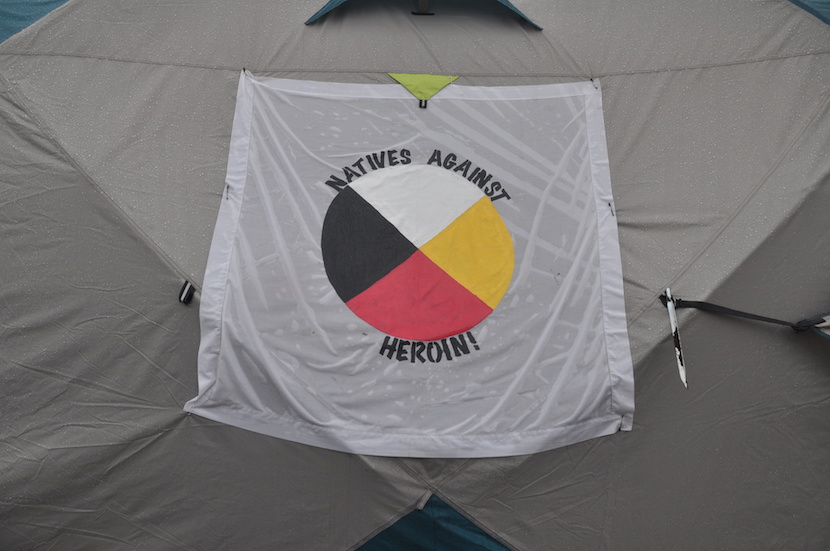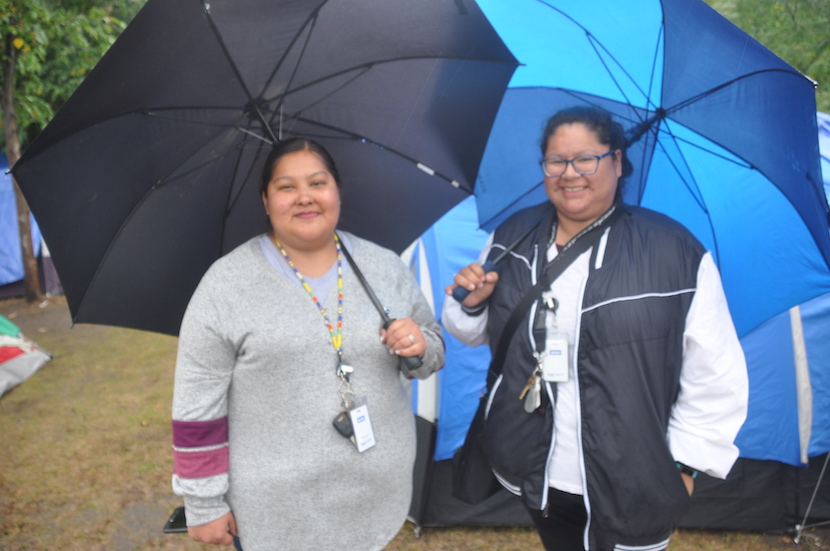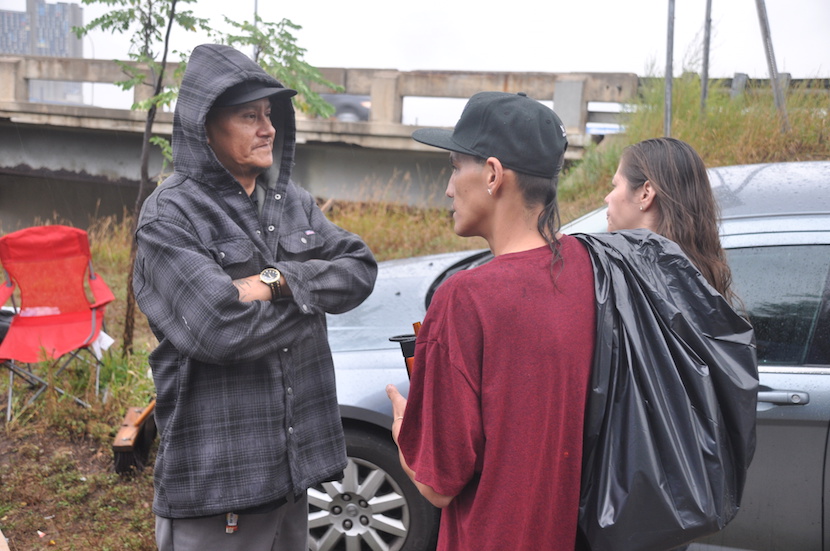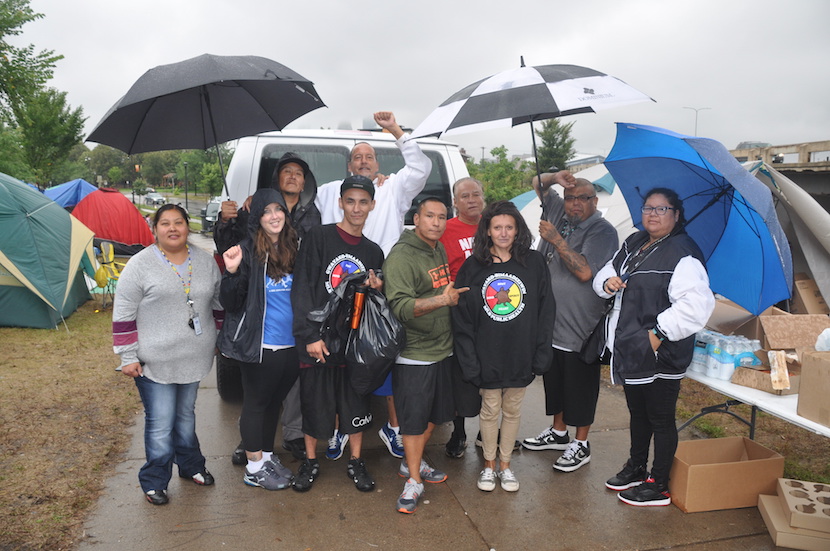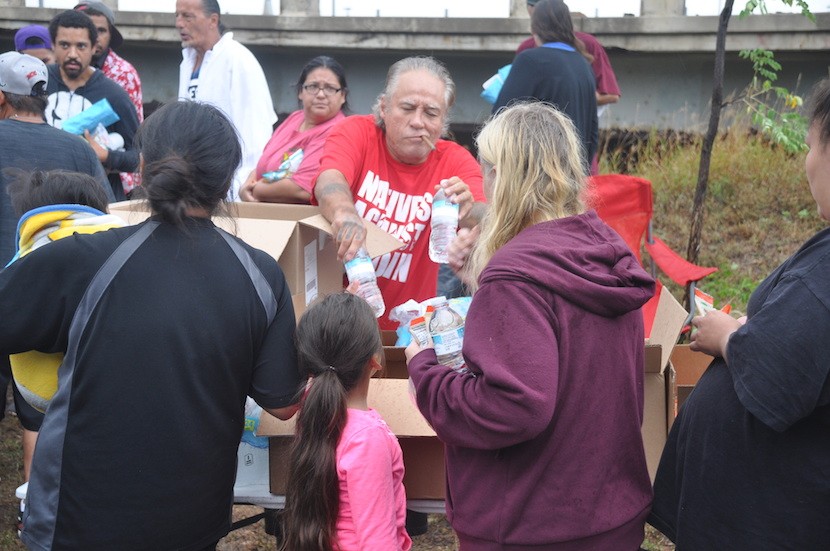
An impromptu homeless camp dubbed “The Wall of Forgotten Natives” in the Little Earth neighborhood in Minneapolis is shining a bright light on the problem of homelessness among Native Americans, while also raising concerns among government agencies, tribes, and nonprofits.
The camp started several months ago with one tent set up on a narrow strip of state land along a sidewalk near East Franklin and 16th Avenue. By the end of summer, it expanded to nearly 150 tents and hundreds of people.
With a large number of residents suffering from addiction, concerns were quickly raised about shared needles, drug-resistant infection, and lack of healthcare and hygiene.
Residents, meanwhile, have described the camp as a family, providing more safety than going it alone or in a small group. After an initial plan to close the camp met opposition, city officials began meeting with tribes and nonprofits to make the camp safe for residents while working toward a more permanent solution. The coalition launched an outreach effort to provide housing assistance, medical care, and social services.
In August, Minneapolis Mayor Jacob Frey pledged to find housing for all residents by the end of September — a vow seen by many as unrealistic, though heartfelt. Frey acknowledged the historical origin of the land: “It’s Dakota property,” he said.
The current plan is to relocate the camp to one or more provisional shelters by October.
Natives Against Heroin volunteers have been a constant presence at the camp with a large tent serving as a sort of “command center” distributing food, clothing, supplies, and emotional support to residents.
On August 28, Mille Lacs Band Health and Human Services employees, with help from Sober Squad and Natives Against Heroin members, brought a van load of supplies to the camp, including sweatshirts, food, water, and other items.
Several overdoses and deaths have been reported at the camp, where drug use is common.
A man was found unconscious in his tent in August and later died. An autopsy ruled his death an overdose.
On September 8. Alissa Skipintheday, 26, passed away from complications resulting from an asthma attack at the camp. She had been living at the camp for several weeks, according to residents. Alissa, who was raised by her grandparents on the Mille Lacs Reservation, suffered from chronic asthma but was without necessary medication.
Patina Park, executive director of the Minnesota Indian Women’s Resource Center and chair of the Metropolitan Urban Indian Directors (MUID), said that with medical care, Alissa might have survived.
On September 10, Wade Redmond, 20, passed away two weeks after suffering cardiac arrest related to a drug overdose at the camp.
